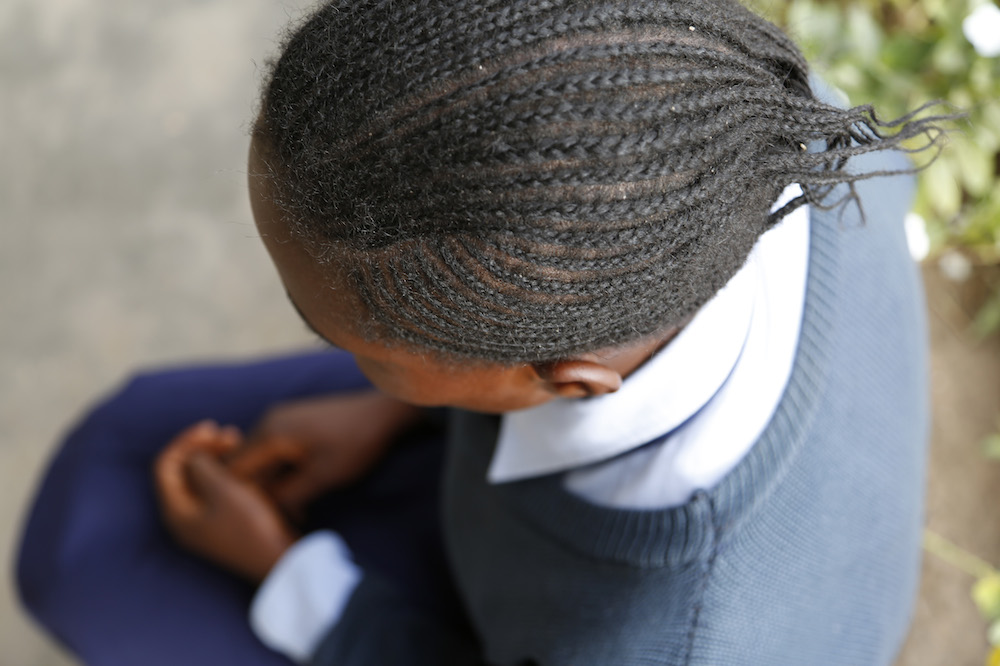
‘I feel like crying every day’: how FGM and early marriage ruined one girl’s dream of education
Barriers to education, Child labour, Girls' education, Right to education
Although female genital mutilation and child marriage are illegal in Kenya, they are still rife - as one woman's shocking experience shows.
A spirited fight by non-governmental organisations in Kenya’s Tharaka Nithi County was not enough to save 19-year-old Jane, from early marriage.
Though only a teenager, Jane looks as if she is pushing 30 years. She is a mother of a two-year-old girl.
Jane is expecting her second in about three months time and her husband, a local butcher, is very excited. But Jane does not smile, let alone laugh much.
She doesn’t talk very much and if and is given to shouting at her mother, who – we later got to learn – she blames for her “troubles”.
Jane dropped out of primary school in Standard Four after her parents’ inability to pay school fees. A little later she was circumcised, according to tradition, says her mother without any sign of shame or
regret.
“Circumcision of girls is an important culture in our community. I will not be the first to oppose the practice of circumcising my daughters,” said Charity, Jane’s 50-year-old mother.
But what Charity, a mother of seven, is not revealing is that she and her late husband forcibly circumcised their daughter ostensibly to prepare her for marriage.
“She will tell you that their daughter was circumcised because they respect tradition. The truth of the matter is that they have been on the verge of starving for seasons due to failed rains,” said Julliet Kaari, who works as a nurse at a health facility at Marimanti in Tharaka Constituency.
“The father only owned half an acre of land and wanted to buy a few heads of cattle.”
One of the factors that have fuelled early child marriages in Tharaka and other marginalised communities is female genital mutilation (FGM) – a practice that has refused to die.
While in the past young girls underwent the rite mostly during their last teenage year, it is mostly done in secret now because of a government-led crackdown on communities that practise it.
“I am very bitter because my parents forced me to be circumcised against my will,” said Jane, visibly angry.

“I wanted to perform well in the Kenya Certificate of Primary Education and Kenya Certificate of Secondary Education and go to university to study medicine.”
After she was “cut”, Jane was married off to a now 34-year-old farmer-cum-businessman.
“Her husband is rich because he inherited his father’s property, including 50 heads of cattle upon the old man’s death,” said Ms Kaari, who is actively involved in different community initiatives.
“Jane’s late father received two bulls and a three heifers as bride price. Though he is dead now the five heads of livestock have sustained the family.”
So why is Jane at her mother’s house instead of her husband’s home?
Her mother smirks.
“Her husband beats her on a daily basis. Look at her neck and face. That man is violent and abuses my daughter too much,” Charity said, admitting she encouraged Jane to “come back home to save her life.”
Jane says that, while she is still bitter that her parents forced her to undergo FGM and marriage, she has “somewhat” forgiven them, especially because she is now safe.
“OK, I am not sure I am safe. That man (her husband) is violent and my friends have told me he is planning to come for me by force,” she said.
“But we have reported the matter and made him aware he could be arrested if I am harmed in any way.”
Jane says she is doing a tailoring course with an aim starting a dressmaking shop within five months.
“My parents are the reason I am not in secondary school now,” she said. “Though some of my former classmates have also dropped out of school there are some who are still there and I envy them.
“I feel like crying every day because I am so bitter. But maybe I will get some money to do business because I want to make sure I educate my child to university.
“I want to give her what my parents denied me. That will be my revenge against them.”
But, for now, she thanks her mother for accepting her back home.
More news

Skills for the future give young people the best chance of success
